South Africa National Anthem: Full Lyrics, Different Versions and History
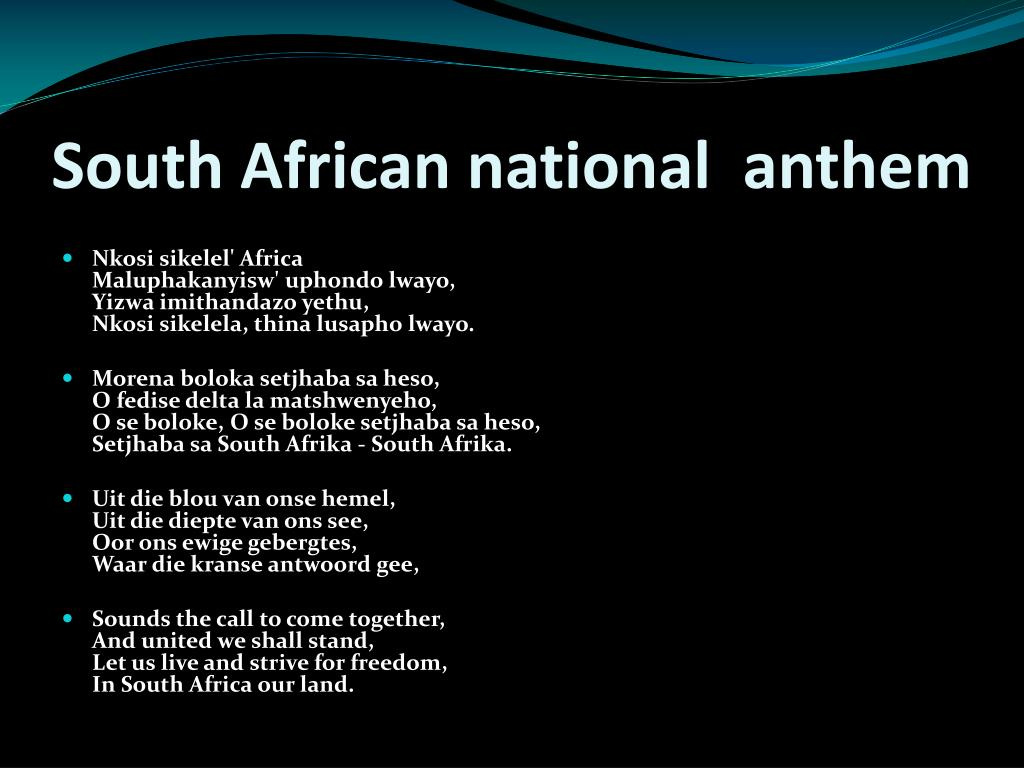 |
| "The Call of South Africa" - Full lyrics of South Africa National Anthem |
The National Anthem of South Africa was adopted in 1997 and is a hybrid song combining new English with extracts of the 19th century hymn "Nkosi Sikelel' iAfrika" (English: "God Bless Africa", lit. '"Lord Bless Africa"') and the Afrikaans song "Die Stem van Suid-Afrika" (English: "The Call of South Africa"), which was used as the South African national anthem from the late 1930s to the mid-1990s. The committee responsible for this new composition included Anna Bender, Elize Botha, Richard Cock, Dolf Havemann (Secretary), Mzilikazi Khumalo (Chairman), Masizi Kunene, John Lenake, Fatima Meer, Khabi Mngoma, Wally Serote, Johan de Villiers, and Jeanne Zaidel-Rudolph.
The anthem is often referred to by its incipit of "Nkosi Sikelel' iAfrika", but this has never been its official title, which is simply "National Anthem of South Africa".
Full lyrics of South Africa's National Anthem in Different Versions
The first is the African National Congress’ official anthem, ‘Nkosi Sikelel’ iAfrika (Lord, Bless Africa)’.
The second is ‘Die Stem van Suid-Afrika (The Call of South Africa)’, which was the country’s national anthem during Apartheid.
When South Africa won the Rugby World Cup back in 1995, the powers that be officially decided to acknowledge both songs as national anthems.
The anthems were played alongside each other at the tournament, and two years later, they merged into one song.
‘Nkosi Sikelel' iAfrika (The Call of South Africa)’
Nkosi Sikelel' iAfrika (Xhosa)
Maluphakanyisw' uphondo lwayo (Xhosa)
Yizwa imithandazo yethu, (Zulu)
Nkosi sikelela, thina lusapho Iwayo. (Zulu)
Morena boloka setjhaba sa heso, (Sesotho)
O fedise dintwa le matshwenyeho, (Sesotho)
O se boloke, O se boloke setjhaba sa heso, (Sesotho)
Setjhaba sa, South Afrika, South Afrika. (Sesotho)
‘Die Stem van Suid-Afrika (Lord, Bless Africa)’
Uit die blou van onse hemel, (Afrikaans)
Uit die diepte van ons see, (Afrikaans)
Oor ons ewige gebergtes, (Afrikaans)
Waar die kranse antwoord gee, (Afrikaans)
Sounds the call to come together,
And united we shall stand,
Let us live and strive for freedom
In South Africa our land.
What are the lyrics translated into English?
Lord bless Africa
May her glory be lifted high,
Hear our petitions
Lord bless us, your children.
Lord we ask You to protect our nation,
Intervene and end all conflicts,
Protect us, protect our nation,
Protect South Africa, South Africa.
Out of the blue of our heavens,
From the depths of our seas,
Over everlasting mountains,
Where the echoing crags resound,
Sounds the call to come together,
And united we shall stand,
Let us live and strive for freedom
In South Africa our land.
Watch the full lyrics video of South Africa's National Anthem below
The lyrics employ the five of the most widely spoken of South Africa's eleven official languages – Xhosa (first stanza, first two lines), Zulu (first stanza, last two lines), Sesotho (second stanza), Afrikaans (third stanza), and English (final stanza). The lyrics are sung in these languages regardless of the native language of the singer. The first half was arranged by Mzilikazi Khumalo and the latter half of the song was arranged by Jeanne Zaidel-Rudolph, who also wrote the final verse. The fact that it shifts (modulates) and ends in a different key (from G major to D major), a feature it shares with the Italian and the Philippine national anthems, makes it compositionally unusual.
South Africa's National Anthem: History
Apartheid, which governed South Africa from the late 1940s until the early 1990s, was a system of institutionalized racial segregation and discrimination based on white supremacy and the repression of the black majority for the benefit of the politically and economically dominant Afrikaner minority and other whites. In this time period, "Die Stem van Suid-Afrika," or simply "Die Stem," an Afrikaans language song about the Voortrekkers and their "Great Trek," was considered South Africa's national anthem. Poem written by C. J. Langenhoven in 1918; music composed by Marthinus Lourens de Villiers in 1921 (under the title "Die Stem"). Between 1938 and 1957, "Die Stem" (English: "The voice of South Africa") served as the co-national anthem alongside "God Save The King"/"God Save The Queen," and from 1957 until 1994, it served as the sole national anthem. The song "Die Stem van Suid-Afrika" (which translates to "The Voice of South Africa") had eight verses (The original four in Afrikaans and four in English - a translation of the Afrikaans with a few modifications). It was rarely sung in its entirety, with the first stanza being the most well-known and frequently being sung first, followed by the final stanza.
With the end of apartheid in the early 1990s, the fate of "Die Stem van Suid-Afrika" was uncertain.
It was kept as the national anthem, though another song, "Nkosi Sikelel' iAfrika," written in the Xhosa language and popularized by the anti-apartheid movement, was also introduced and adopted. Enoch Sontonga, a Methodist school teacher, wrote "Nkosi Sikelel' iAfrika" in 1897. Originally sung as a hymn in church, this song soon became a symbol of resistance to the apartheid government.
In 1994, when both songs were sung at Nelson Mandela's inauguration, the South African government officially recognized them as the country's two official anthems.
According to their coach Anne Munnik, the Springboks "did so with great feeling" when Morné du Plessis suggested they memorize "Nkosi Sikelel' iAfrika" before the 1995 Rugby World Cup.
Freedom Day (South Africa)On April 27, South Africans observe Freedom Day as a national holiday. It honors the day in 1994 when the first elections after the end of apartheid were held. The elections were the first national ones in which all adults over the age of 18 from any race group were allowed to vote. This included foreign citizens who had made South Africa their permanent home. Before the end of apartheid, black South Africans had no voting rights at all and non-whites in general had severely restricted ones. The Public Holidays Act includes it among the 12 official holidays celebrated annually (No. 36 of 1994). President Nelson Mandela gave a speech to Parliament on the first holiday celebration: Few of us were able to hold back the tears as the sun rose on this day in 1994, reminding us of the terrible history from which we have emerged, the great opportunities we now have, and the bright future that awaits us. Today, Americans across the country are gathering to commemorate a momentous occasion in our nation's history. No matter where in the world we may be, as South Africans our hearts are united in our undying loyalty to our homeland and our unwavering faith in its promising future. |
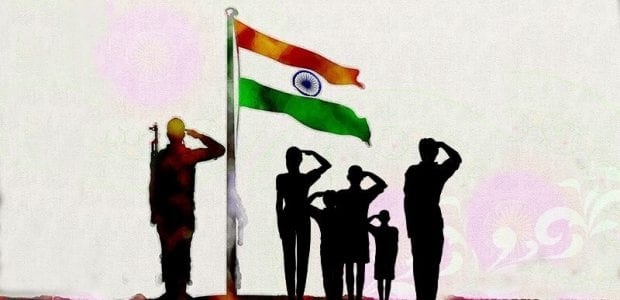 Full Lyrics of India’s National Anthem Full Lyrics of India’s National Anthem Check out full lyrics of India's national anthem in short and long versions. |
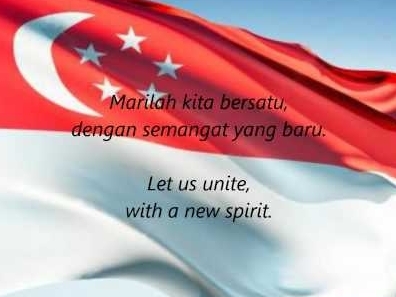 Full Lyrics of Singapore’s National Anthem Full Lyrics of Singapore’s National Anthem Listen to Onward Singapore-the national anthem of Singapore with a lyrics video to sing along. |
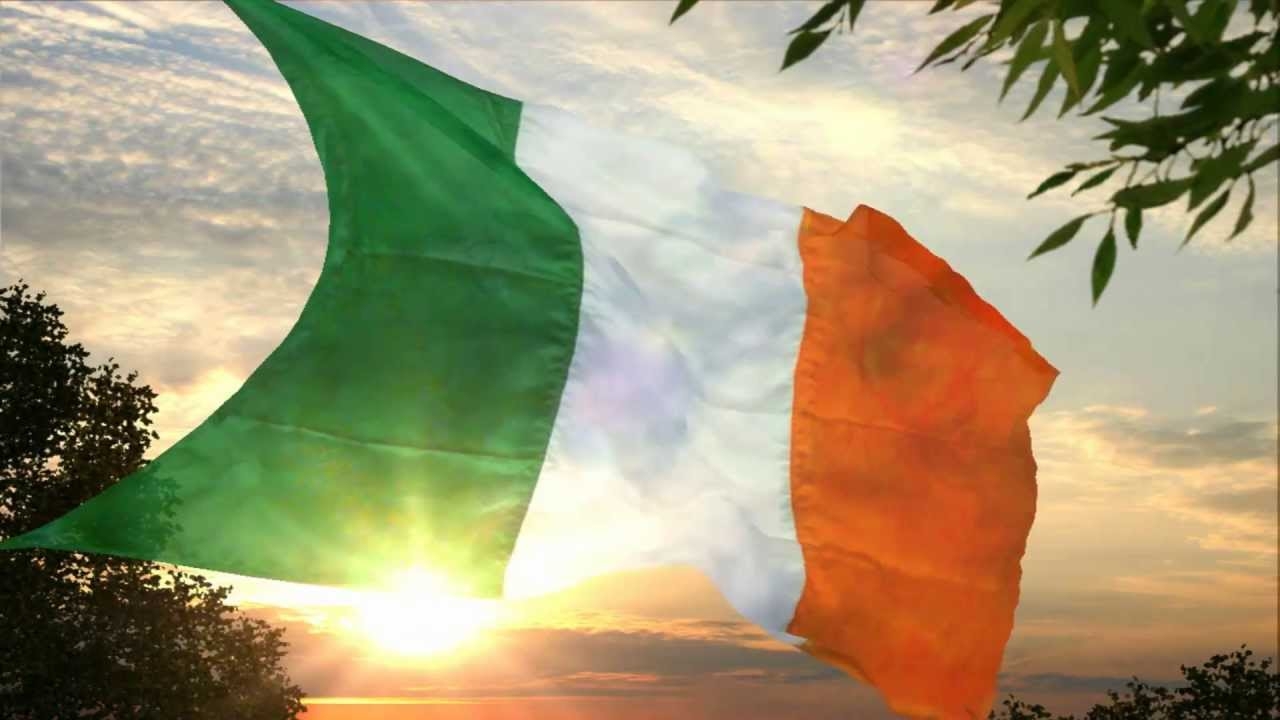 Full Lyrics of Ireland’s National Anthem Full Lyrics of Ireland’s National Anthem Today, the English version of the Ireland anthem is rarely used, and many people are not aware that the Irish version was not the original ... |
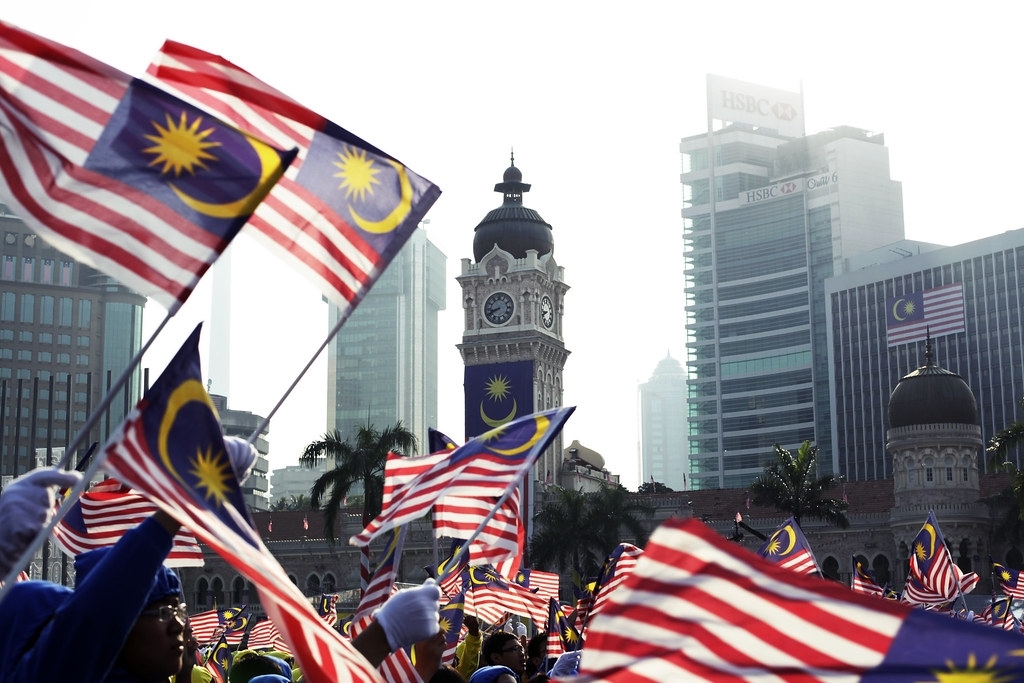 Full Lyrics of Malaysia’s National Anthem Full Lyrics of Malaysia’s National Anthem Negaraku (meaning My Country in Malay) is the national anthem of Malaysia. How was it composed? What is the meaning of the song? |


























